Chrysanthemum tea & Tropical Flower
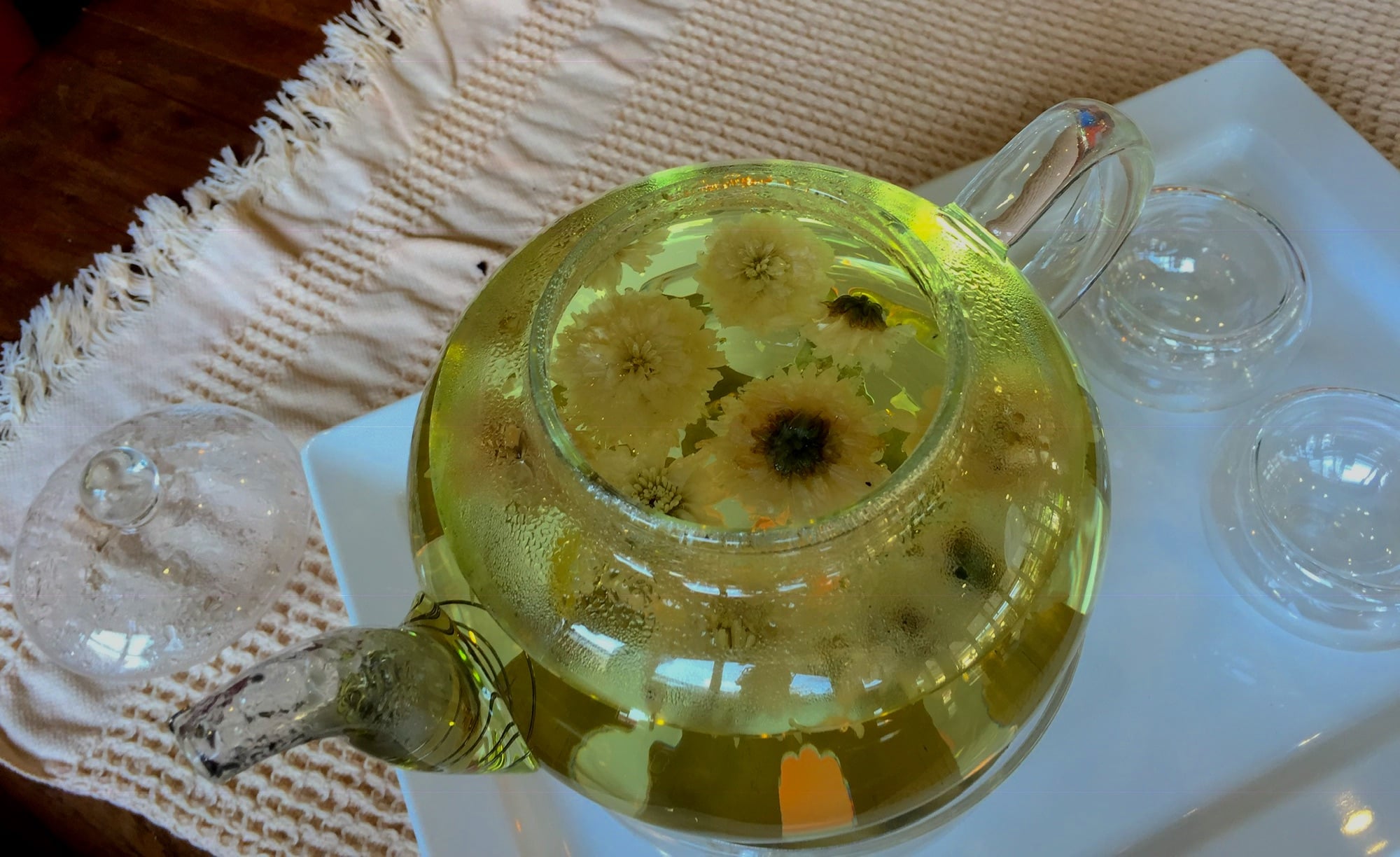
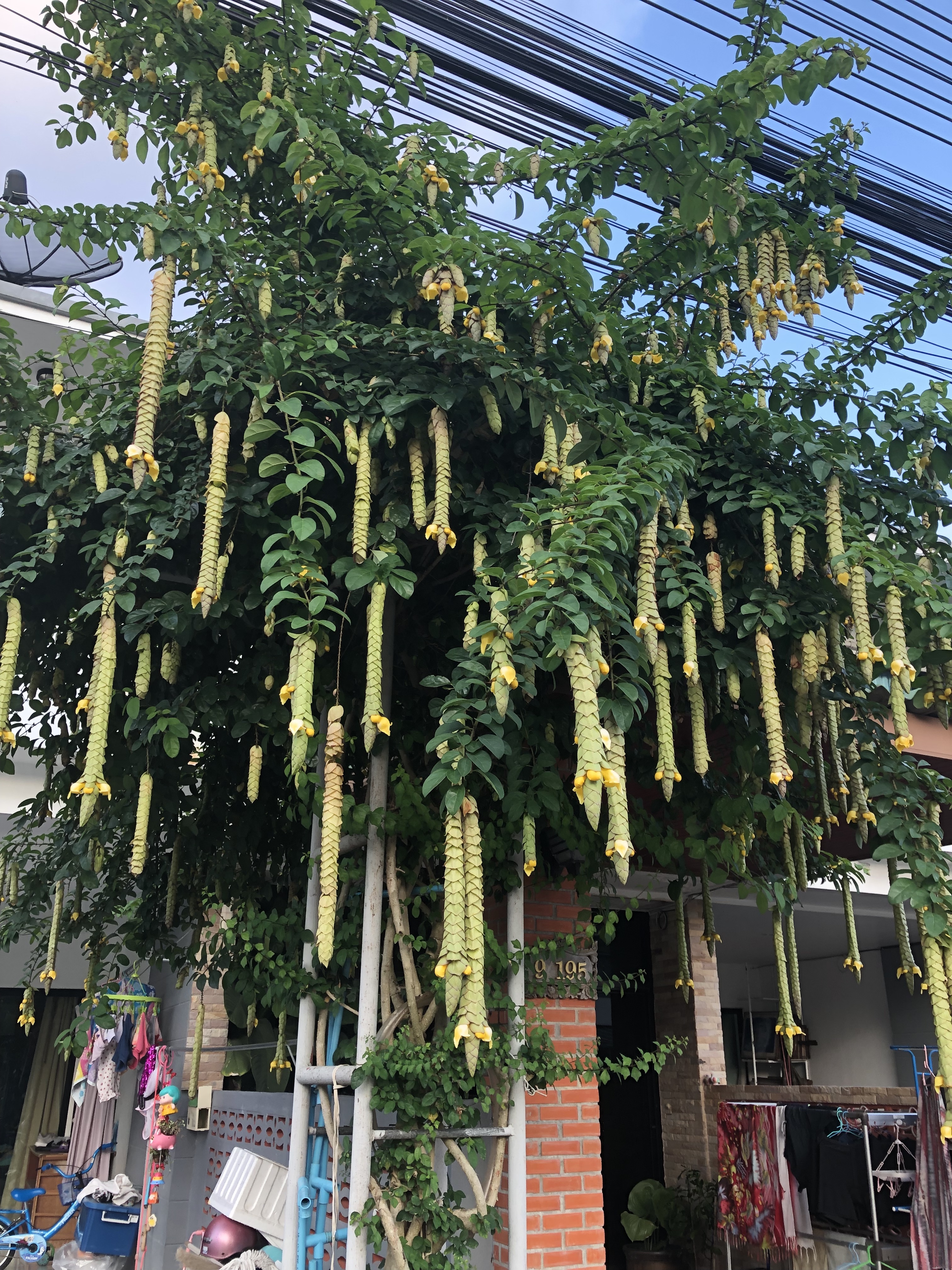
Paint Job & Typical Restaurant staff
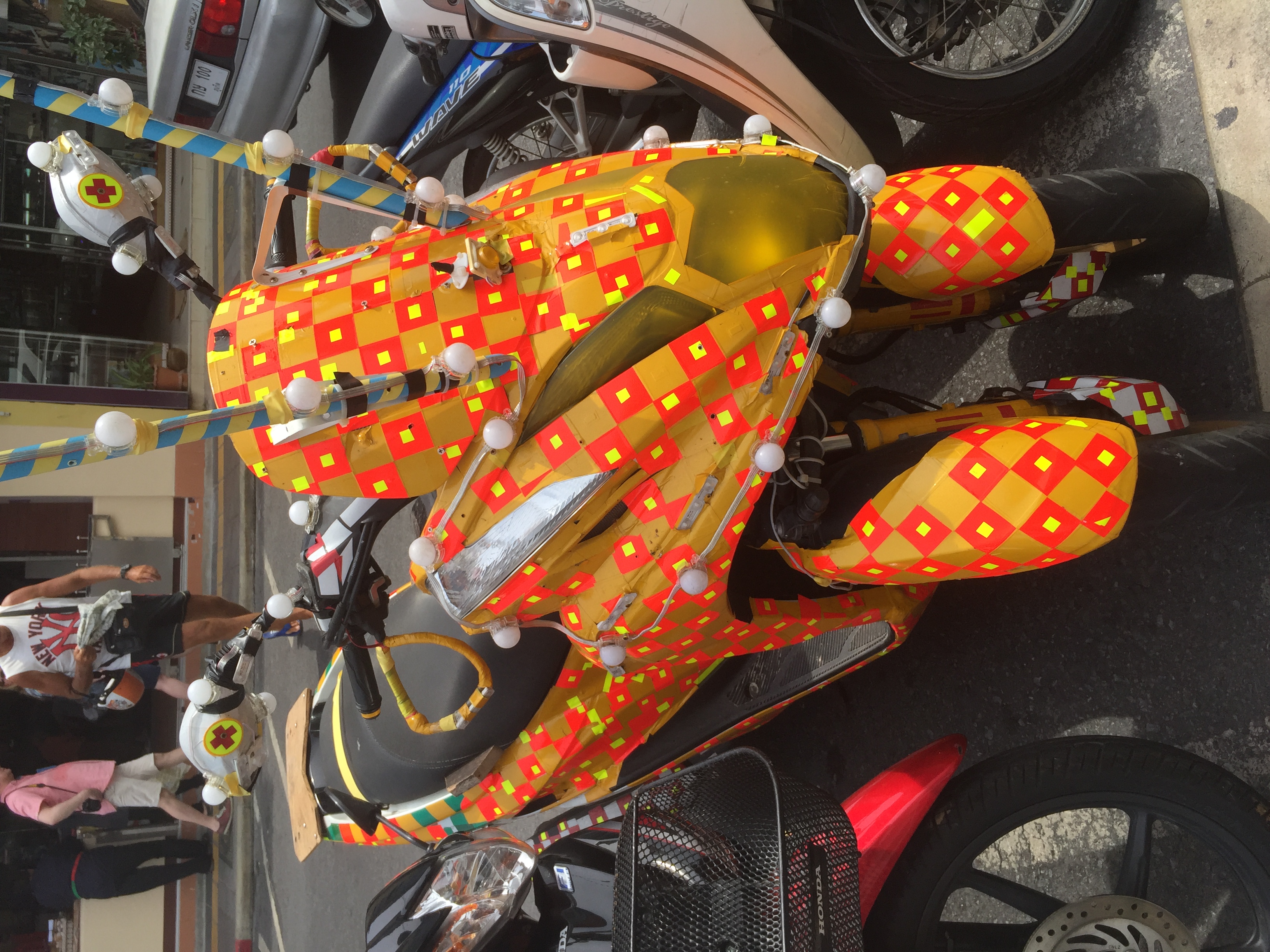
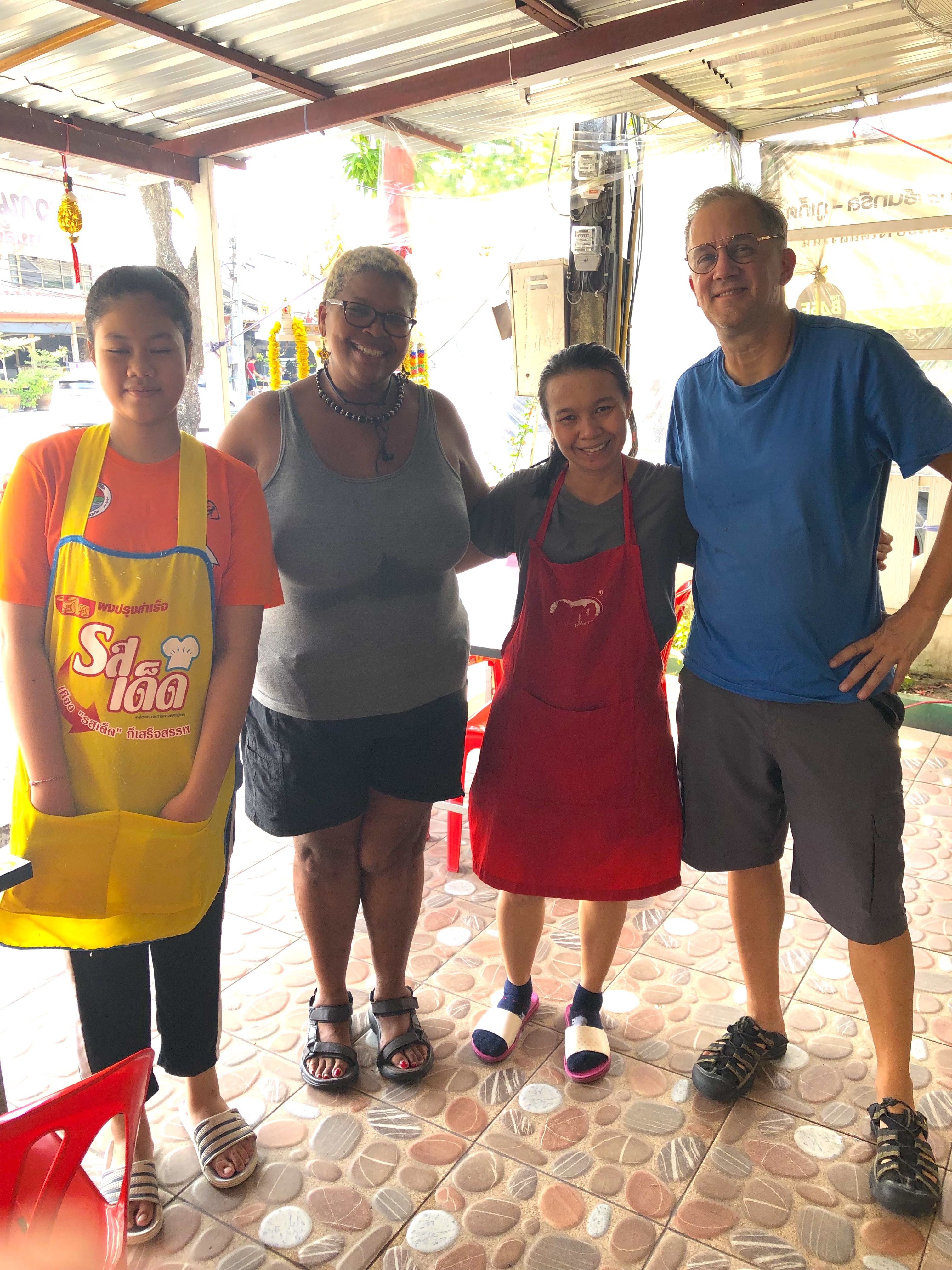




One of the interesting things about traveling to Asia from the US is the sheer determination it takes to fly 16 to 20 hours straight. As an older person I appreciate this in a new way. It takes a real toll on you physically and mentally to be stuck in an upright seat closed in a room with 200 people. I focused on watching movies, a little with my laptop, periodically I did exercises in the aisle. Even going to the toilet was a welcome break. Eating was a treat. I remember getting breakfast when we flew to China. There was the western breakfast and Asian breakfast. I chose the congee which is an Asian breakfast consisting of broken rice in a fish broth. For me it was completely blind decision, but I was happy with it. Later when we lived in Thailand we found even better congee and other specialty breakfasts.
Living in Asia we took advantage of the proximity of other dream destinations within a few hours plane flight. If you travel from the east coast of the US all the way to Asia for a holiday you face a 12 hour time change. We did that on a visit to our daughter in China. Between traveling to NYC to launch the adventure and the layover there to stopping in Taiwan and on to Beijing and then to our AirBnB it was probably 30 hours of navigating and biding our time at different points. We got used to uncomfortable airport benches. I exercised in the bathroom location in the plane. We adapted. We became familiar with airports and their protocols intimately. We considered joining travel clubs that provide special lounges. We paid for a sleeping room similar to a hotel in Bangkok. There are services and options.
When you arrive in Asia you want to make the most of your efforts. Most people don't get to see the continent at all and it's a huge area of the planet. There is so much to see and even more to experience. What an amazing opportunity!
Since we lived in Thailand for a few years we took trips from there to various locations periodically. Rather than have huge jetlag from each trip it was just like traveling around the states. We took trips from Phuket by land to Burma and Malaysia multiple times. By air we visited Nepal, Cambodia, Singapore and further into Malaysia to Kuala Lumphur. Each of those flights was just an hour or two. We also visited north Thailand which was an hour or so. Thailand itself is the size of California so it's pretty big. There were so many countries and cultures within close proximity to visit like Vietnam, Indonesia, Philippines, India and even Australia.
We usually try to spend two weeks on vacation to really be able to get away and relax, be a part of the culture. We have spent 5 days in 3 different places so that we get a little feel of a certain neighborhood each time. We did that plan in Morocco and China.
You get a better deal in-country than booking experiences/excursions online. We booked a tour of the Sahara dunes of Merzouga online prior to arrival in Morocco. We found a much better deal and cancelled the other. We were able to get our money back fortunately. From then on we always booked in country, usually thru our AirBnB hosts. I do a lot of the arrangements myself.
The best prices are always thru the guy that doesn't have to maintain a website. But it's still good to do your research so that you have a price to compare it to.
There are many options for finding a fare for airline travel. I have used Booking.com, Orbitz, direct on the airline's website, Expedia and cheapoair.com successfully. There are a lot of factors that go into planning transportation. One example was moving to Thailand, carrying a bunch of luggage directly to Bangkok. Then I booked a separate flight on to Phuket. Since BKK to Phuket is a domestic flight, they did not allow the huge volume of luggage I was carrying from my international flight. They wanted to charge a bundle of money to carry that luggage which was allowed on the international flight. I ended up shipping it via the post office which was inside the domestic airport terminal. Another time, when leaving Thailand I booked my flight from BKK to NYC and took the overnight train from Phuket to BKK. The train allowed any amount of luggage. They allowed people to pack their motorbikes on the train.
Cities like Bangkok have more than one airport. The choice is the older more domestic airport and the large international airport. We often flew into the main airport and took a taxi or subway to the other. The subway system was pretty good and easy to understand.
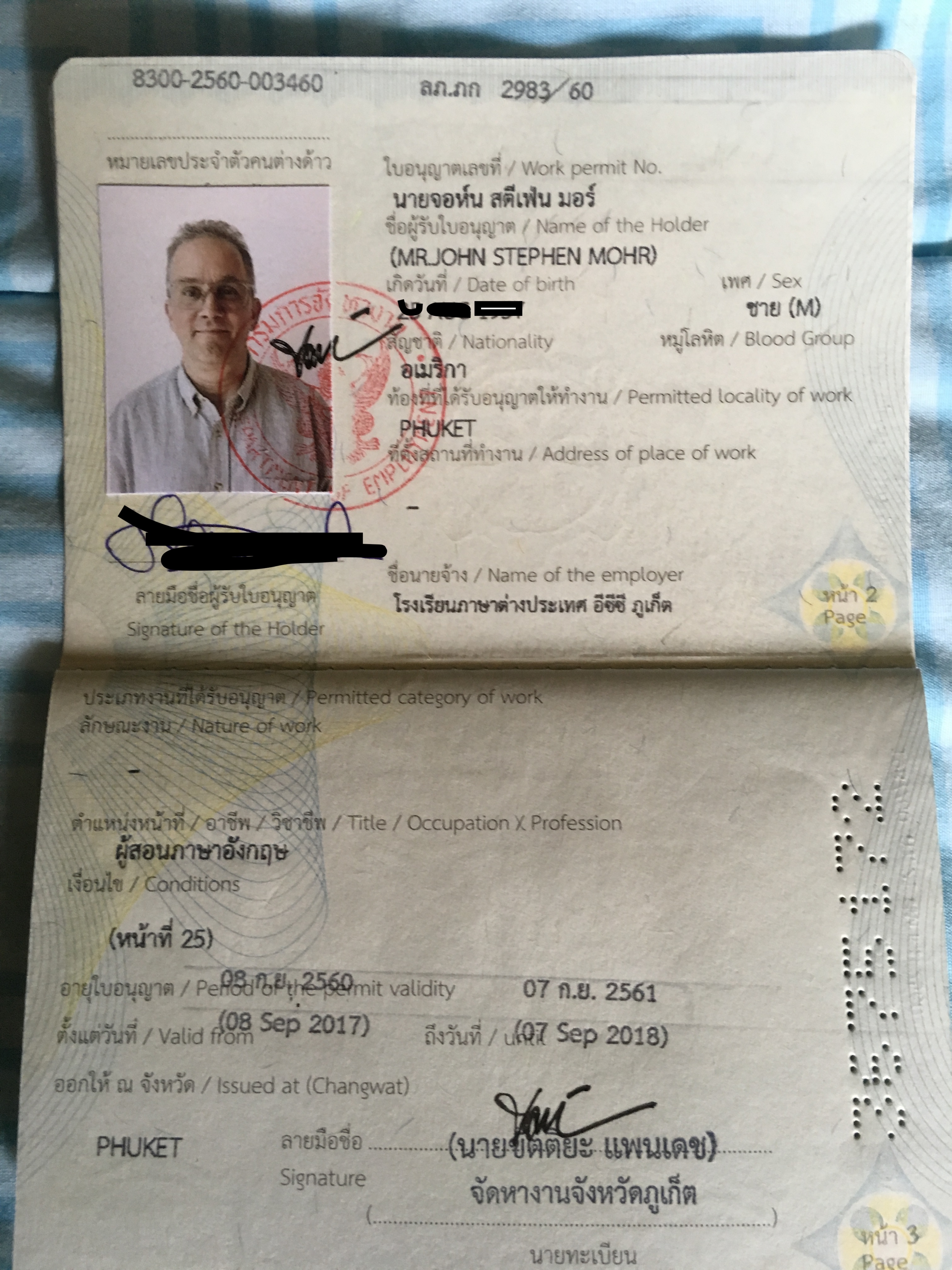
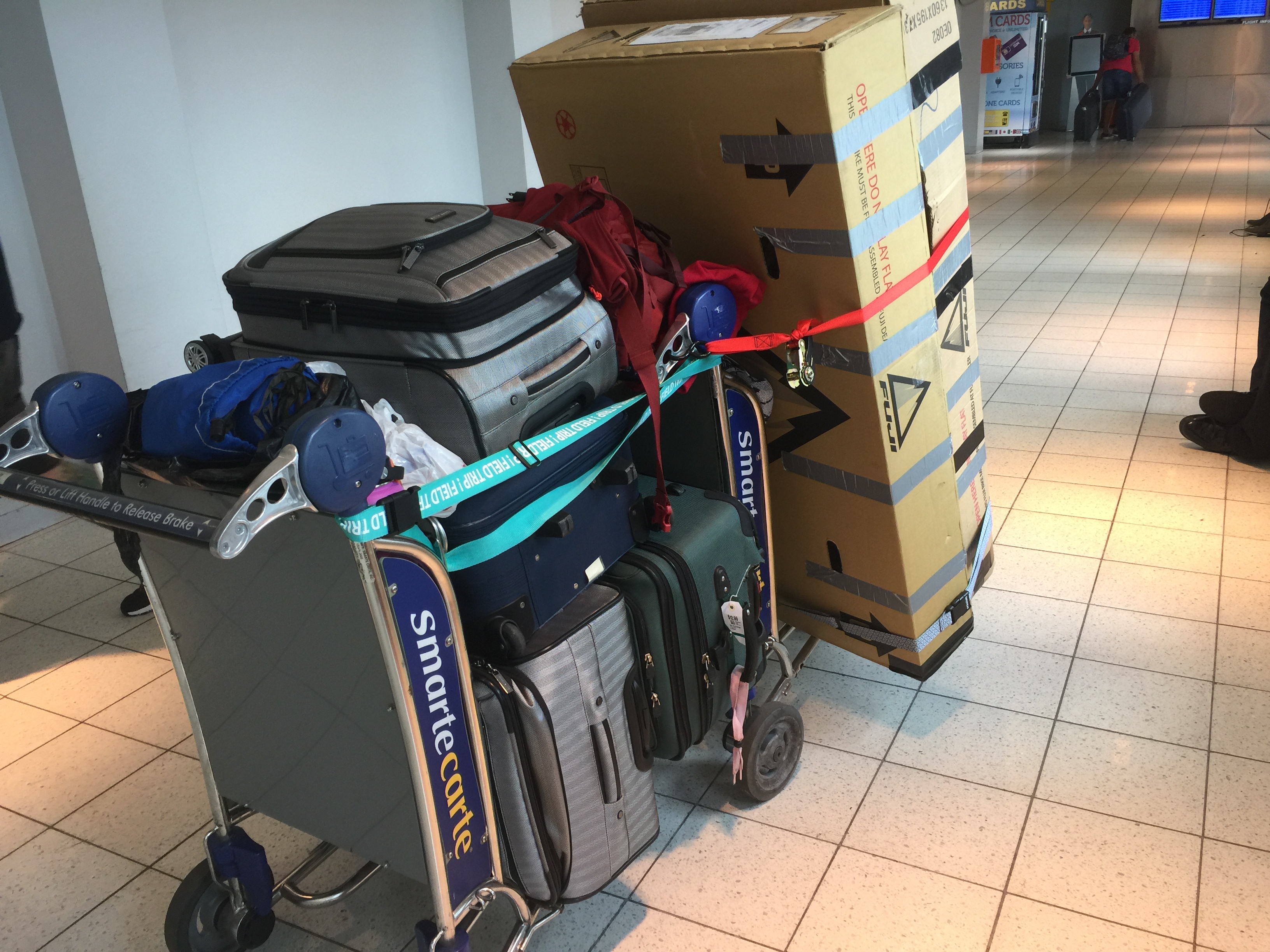
I was reminiscing over old text messages from WhatsApp, Wechat and Line. We used those apps when we lived overseas or traveled. All the connections, directions, conversations. Meeting family in China. Traveling to our host in Marrakech. Finding out where the party is in Phuket.
Whenever I travel to a new country I buy a flip phone and a temp service contract at the airport. Sometimes the phone service in the destination country will be for a week or two or a month. In China we got a small dongle which allowed our phones to connect to internet from cellular service. We bought it before we traveled and picked it up when we got there. Then at the end of our stay we returned it. It was nice to share internet service among the 3 of us.
In Phuket we went to Music Matters jazz club, Jina bar, Prong dong, all the clubs. I miss that life. Teaching the children science and computer science was a fun challenge. Those are my peak experiences in life
Now I'm a grandfather and new rich experience is at hand
Each place has established norms for apps used by the locals. If you had financial transactions some even allowed you to send money. We used TransferWise which is now Wise (2021) to perform financial transactions overseas between different countries. We usually paid utilities at 7-11.
One of the taxi services was called Grab which was something like Uber. Each country seems to have their own system. The nice thing was the app did the communicating. Taxis are notoriously difficult to communicate with. Giving directions, telling them the destination, bartering for a price, all the little details are worked out with the app.
Wherever we traveled we would get a cell phone with service with the destination phone service activated. First thing off the plane we'd search for the phone company kiosk in the airport to connect to internet and communication services. We wanted to be able to connect with local GPS and other services even if we didn't understand the language. China presented a significant challenge in that regard. The flip phone we got had a menu all in Chinese and I don't know chinese. *But* we used that phone service for internet and got a dongle from another service provider. The dongle gave our US phones internet access to GPS and internet services like email and searches. Of course China also limited such websites that we were familiar with like Google. Locals could use a VPN to bypass some of the restrictions. It was nice use the dongle to have the internet for endless resources. If our Airbnb guy wanted to reach us or we wanted to reach him, we were good. We are able to connect at will. We had resources. Phone and internet are significant benefits in a foreign country. We were able to take pictures of Chinese signs and the app would translate them. We could Google translate our communications with Chinese people like waitresses or drivers. The GPS mapping was also a great option.
The catalog for iTunes on your phone is not the same in the US as it is in Thailand. Some songs, albums, movies, etc were not available in Thailand. Some that we found in Thailand we were not able to keep upon returning to the US. Same with TV shows. Some of the problem seemed to involve which bank was paying for the services.
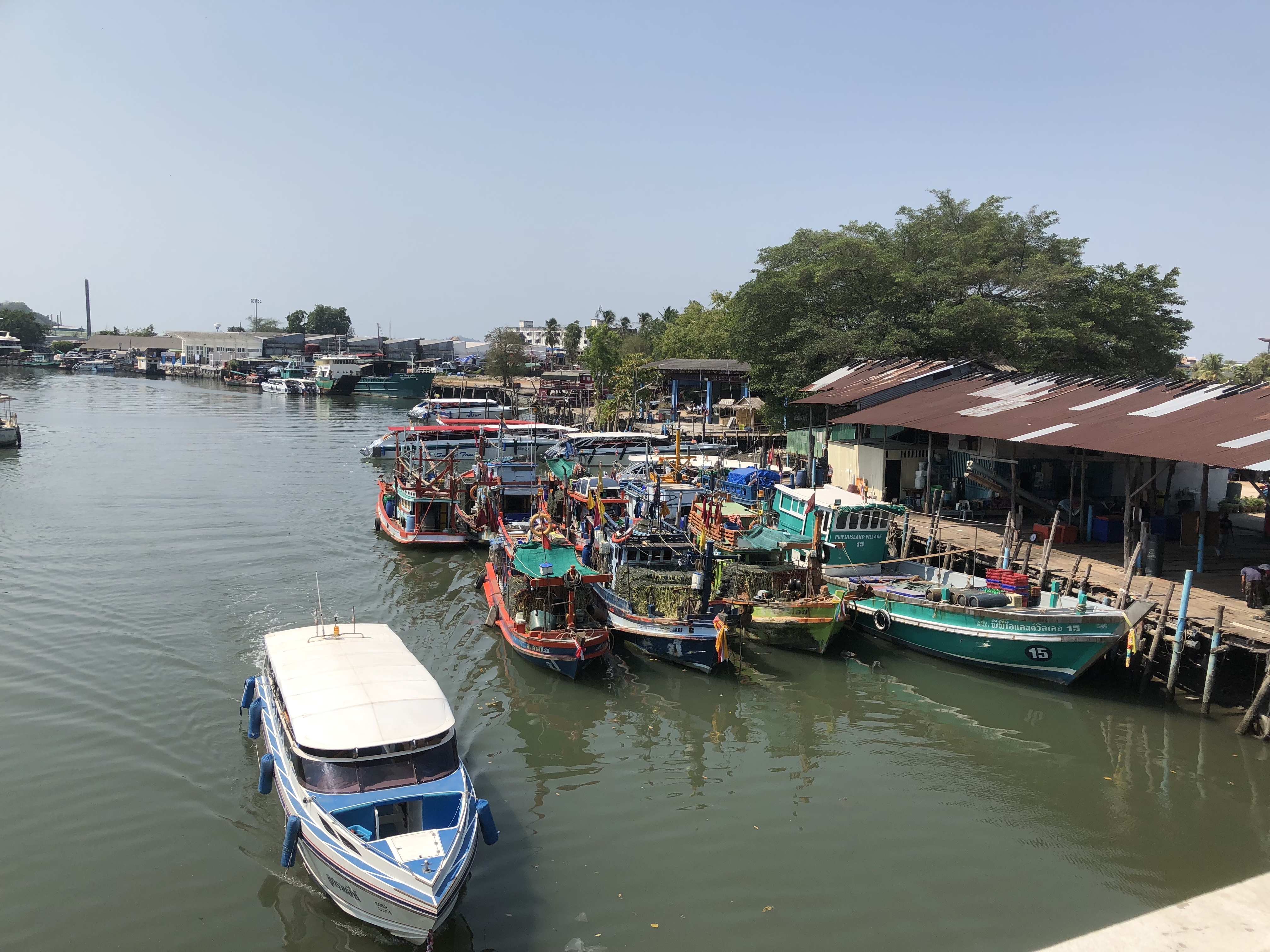
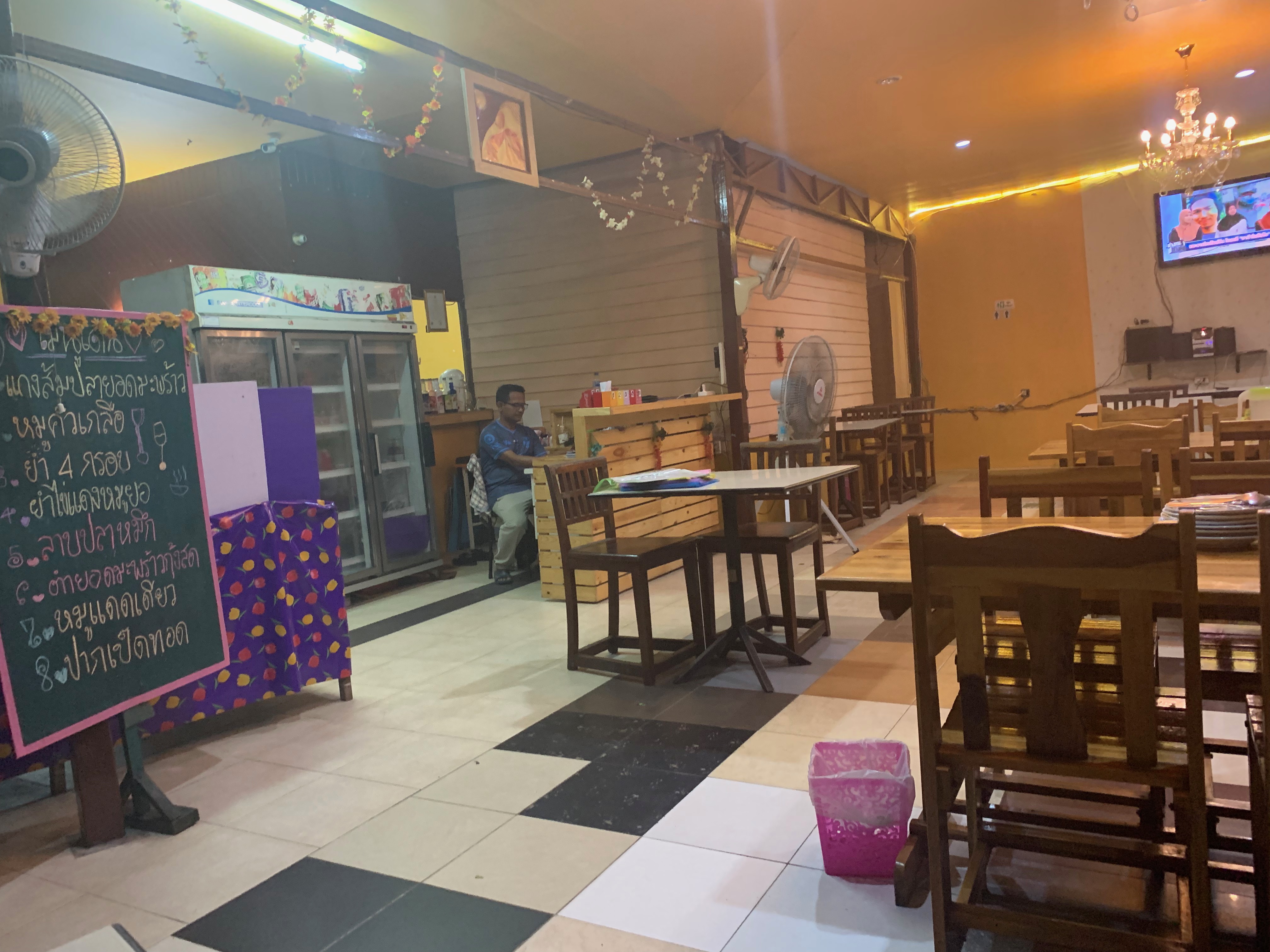
Moving money between a US bank account and a foreign one should be straightforward but it's not. It’s also not free, just to be clear. We looked into various ways to add money to our Thai bank account from our US account. Western Union was expensive. Transferwise cum Wise worked best for us, altho we had to set up a bank account with a low rated US bank. It seemed fairly cheap and painless. It's weird working with a company to access your money. You have to trust the system. Some banks have a relationship with US banks and you can use the ATM in Thailand.
Logging in to your bank may be restricted from a foreign IP address. Keep this in mind if you intend to keep your US bank account while living overseas. In order to use services at those institutions you just need to get a VPN service. That means you'll connect to a server that is local in the US and do your business as if the server is your computer. It's very seamless and just an extra step in the process.
Someone in China wanted to see if there was a market for bike rental in Thailand. They delivered all of these multi speed bikes to Phuket. They were not very popular and now mostly sit around in racks in public places. The streets are not very safe for bicycles for the most part. Most people seem to be able to buy motorbikes, so bicycles are irrelevant. An elite group of Thai people ride race bikes in full kit. That is not who the yellow bikes are marketed to. The elite riders probably spend $1000 for bikes and clothing.
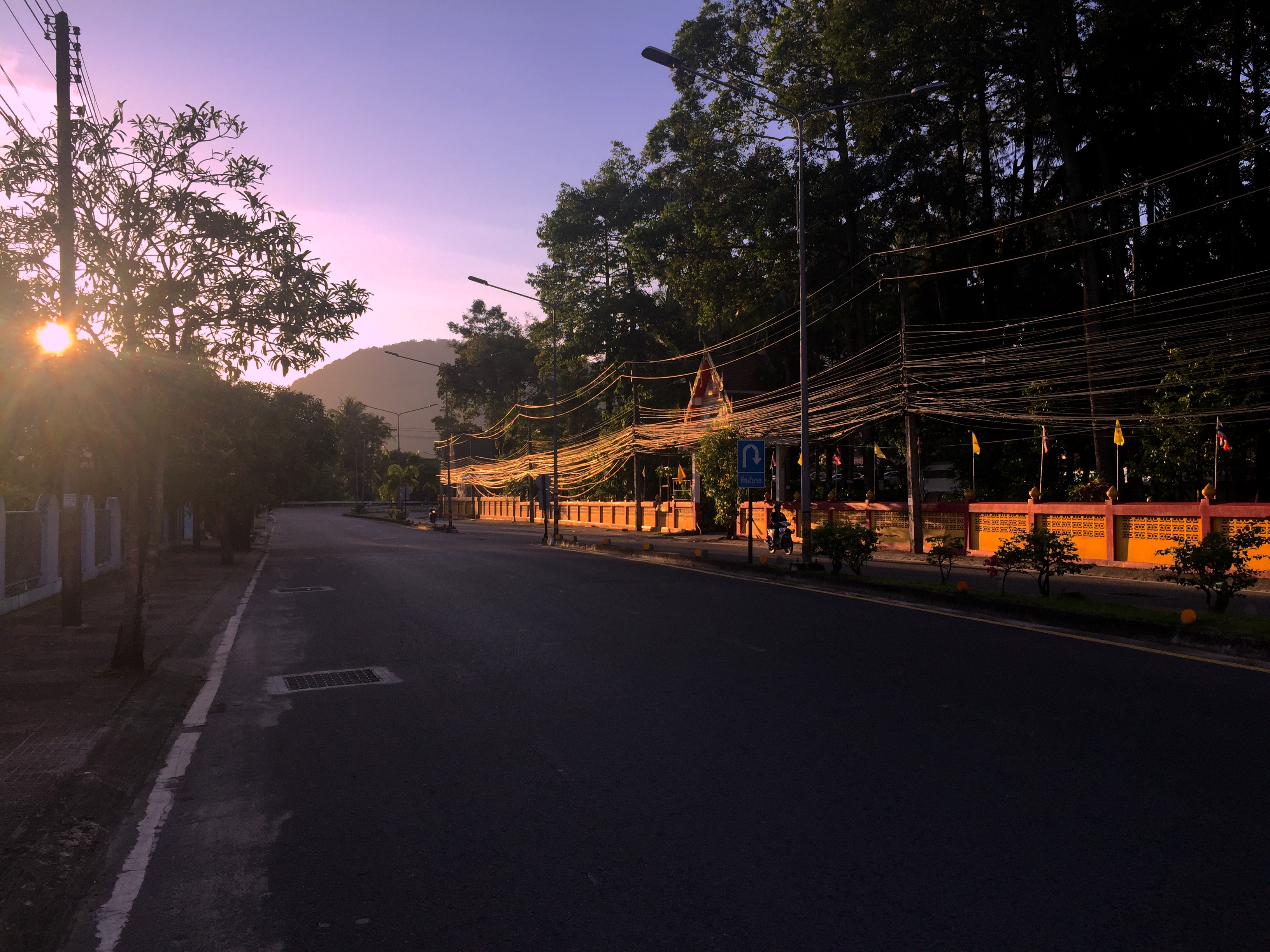
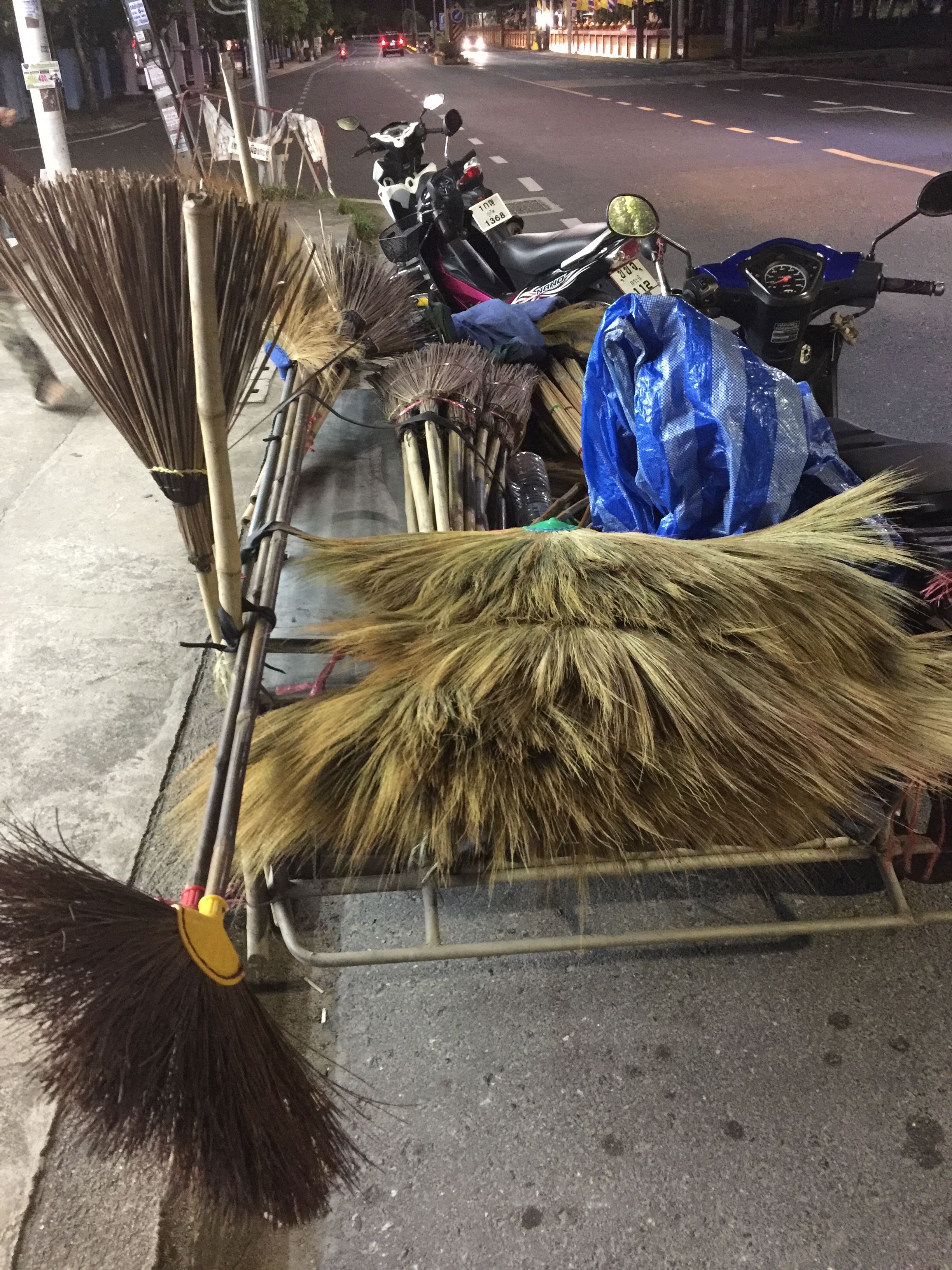
When I trolling around the house I still get reminiscent when I see Thai coins in a box. As I consider retiring overseas I make notes about critical parts of the puzzle that made Thailand so special. One component was that I had a spectacular bike ride. The ride was less travelled. I had shade on the ride and not much traffic.
I remember Karen taking me to work in the car when we had a bad monsoon. The streets were very flooded, probably 8 to 10 inches across parts of the road for a good long while. People were still out even where it was difficult to tell where the road was and how deep the water is.
Living in Mexico is supposed to be noisy. The big advantages of retiring in Mexico are the cost of living, the proximity to the US, the climate, exchange rate, ease of visa processing. Within Mexico, which is a large country, there are many different urban and resort areas to choose from. Mexico City is probably the most cosmopolitan city. The resort towns are probably more expensive and less rich in culture, but the beaches are beautiful and fun.
As you get older and imagine retirement medical care both quality and cost become more important. Imagine communicating your medical needs to someone who speaks little English. A lot of Thai people speak some English especially professionals. Even people manning street carts speak some English.
As far as cost it's amazingly cheap to get medical care. I can walk into the ER at a hospital with no appointment and have services rendered including doctor visit, scanning services, prescription and walk out in 2 hours or less. The bill is likely about $50 for everything. In Phuket there was two major hospitals. The Bangkok hospital was more expensive and very nice, but the other hospital got the job done as well.
Part of getting a work permit for a residential visa is proving that your health is adequate. There is a place that was recommended to me that provides such a bill of health. You go there, pay a fee and they nominally go over your health so they can make some money. If you need such a document check around to make sure you get your clearance.
We had the opportunity to get dental care while we were in Phuket. I went for teeth cleaning a couple of times and Karen had a loose tooth taken care of. Communication was adequate and price was excellent, again, without insurance. We were in Paris briefly and Karen had a tooth ache. Her brother lives in Paris and was able to recommend someone who was able to see her immediately. The price was significantly higher but reasonable for Paris.
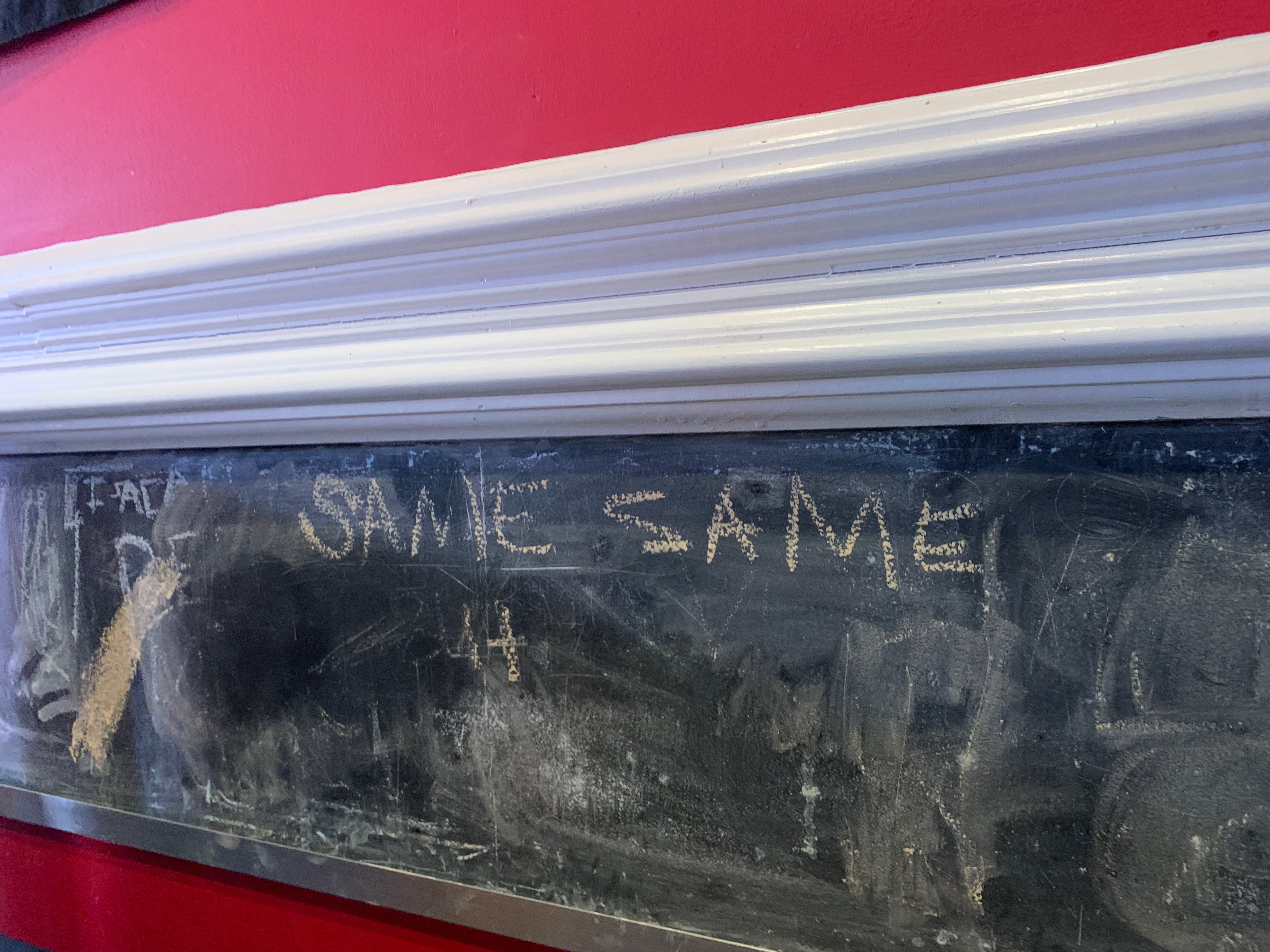
Having a car/registering/insurance/purchase can be a hassle in the US. In Thailand it was relatively painless. Maybe we were lucky. I rented a motorbike for the whole time we lived in Thailand but we did buy a car. The guy we bought from was an expat who'd lived there for years. The car was about 20 years old and had about 200,000km. It was in great condition. It was a 5 speed right hand drive manual transmission car. It had AC but no heat. You know, the tropics? We had plenny heat! Operating the 5 speed shifter with my left hand was a trip. Karen was actually able to use that car regularly to commute to her teaching job every day. She would even pick up friends who needed a ride to school along the way. I always rode the motorbike.
The guy who sold us the car kind of walked us thru the process at the Thai Land Transport offices. He had the green book which records the ownership for the car. If it was a motorbike I think we'd have a blue book.
The challenge of teaching computer science without computers is something I was able to overcome. Our working machine ratio versus students was 3 or 4 to 1. The students worked together anyway, so that was fine. Don't assume that if they have a computer program at the school that they have adequate networking, internet, equipment, system support, software, etc. The best assumption is that they do not. I taught in a large school full of rich kids and they had very little technology and no technical support.
When I taught science in the upper grades of elementary school in Phuket I actually got quite a lot of equipment and supplies. I didn't make use of half of it, but it was nice to have a closet full of science goodies.
The passport is a document which proves your citizenship to the world. It contains your vital statistics of citizenship, birth date & year, photo, expiration date date of the passport document. When you arrive and depart a country by land, sea or air your passport receives and entry and exist visa stamp. This tracks your location. Other countries want to make sure you haven't overstayed the visa that allows you to stay in their country. A country's immigration controls who is living in the country for a legitimate purpose. They control if you intend to work, retire or fulfill some other purpose. They want to know your intent.
If you want to stay in a foreign country for longer than 30 days you usually have to plan that in your country of origin. You can look up their different visa requirements, prepare your documentation and apply for the visa. The visa usually costs $25 to several hundred dollars. It typically lasts 30 days but each country has their own limitations. They're based on the nationality of the immigrant and the relationship between the countries.
Keeping track of a passport is like keeping track of your driving license but much more important and you can't carry it in your wallet. Your passport identifies you as a legal entity in the country you are visiting or living in. As a backup to your passport you can keep a copy of your passport photo page on your phone. It is not the useful at a border but it can identify you at a traffic stop. The traffic cop will just want a bribe anyway whether you have passport or not.
Most places you'll visit track your entry and exit via computer, so you can depend on that system to a certain extent. When you arrive at the airport you'll get to the immigration post in the airport and produce the documents to enter. If you're just visiting most places have a instant tourist visa for Americans. You'll be able to stay a certain number of days without a hassle. They want that tourist dollar. If you work or are retiring you have some extra hurdles. Use the internet to sort out places you want to select for your purposes. You can get up to date information from social media groups. A lot of websites are out of date. There are also visa services. We've used those for renewing visas by doing the border run.
A border run applies to some countries requirement that you leave the country periodically. In Thailand we’d make a border run every 90 days. Mexico has a different process where you can be a citizen in 5 years. That's an important consideration. Always being an immigrant can be wearing on your energy. We almost left Thailand a couple times without the requisite return option on our passport. That could mean that we have to book a round trip to the US and go thru a long arduous process to get our visa straightened out.
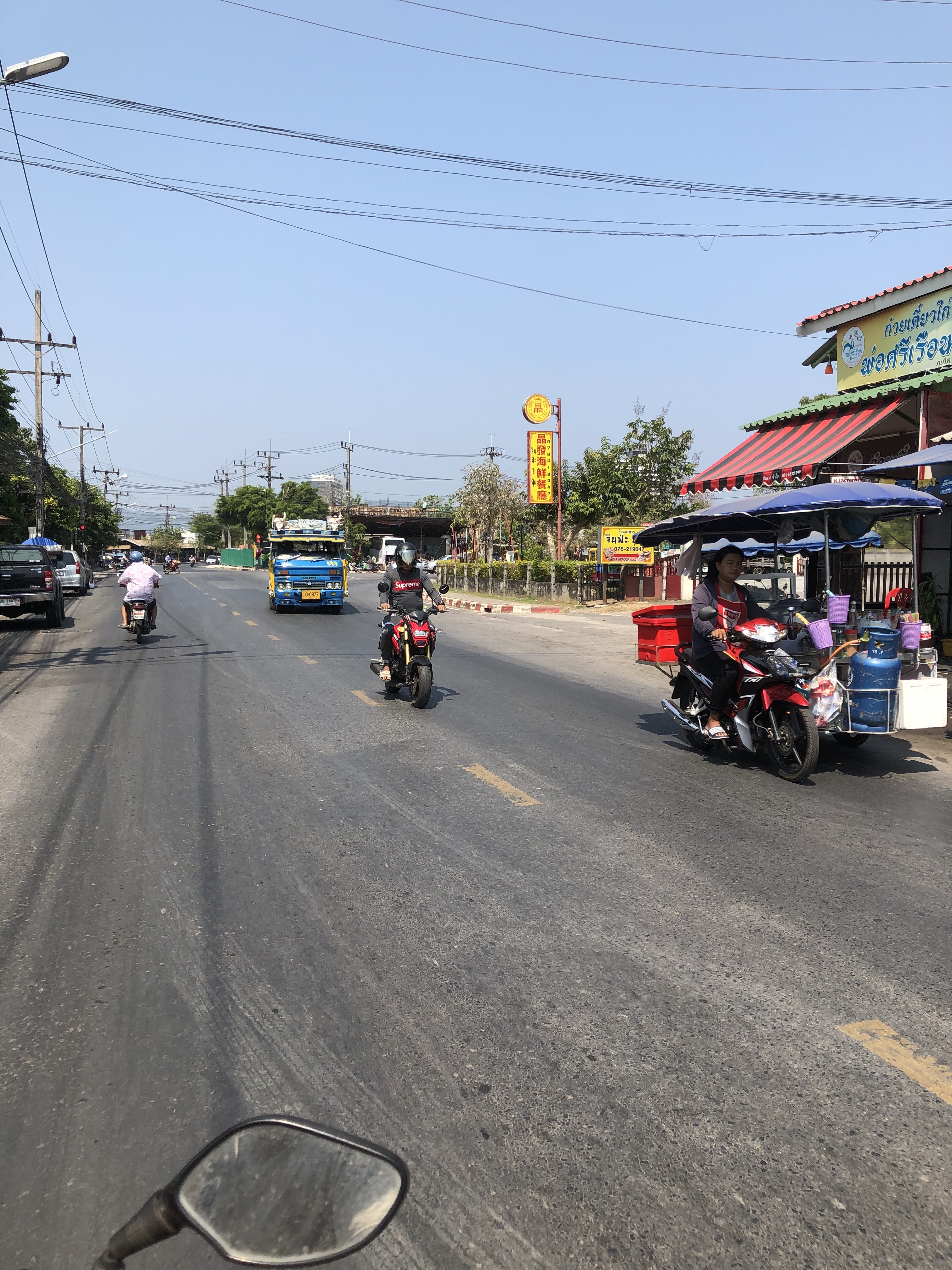
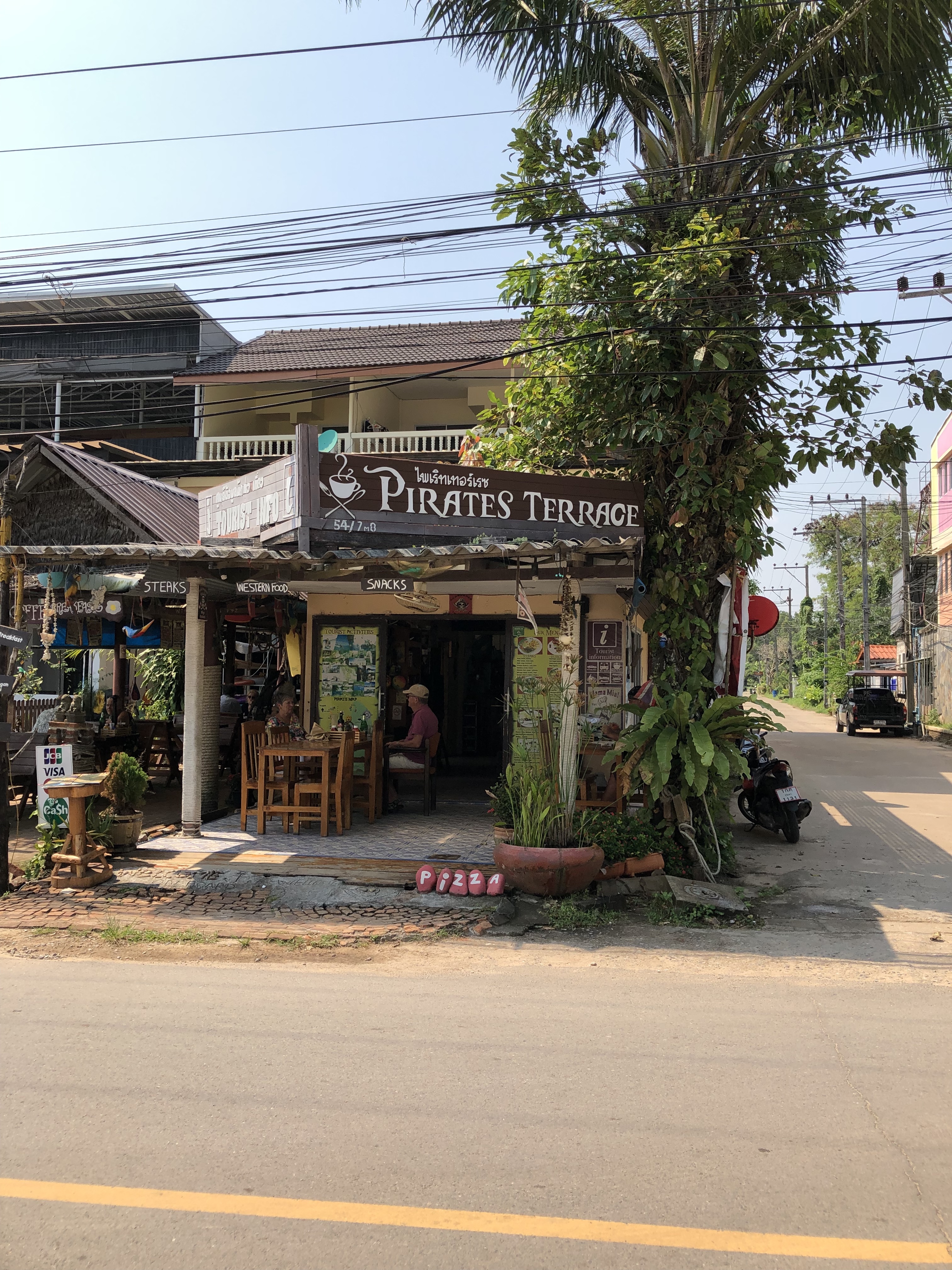
Thai names, besides using a different alphabet, are often 5 or more syllables each name for first and last. Owing to foreigners lack of ample tongue skill to pronounce them the students are given weird nicknames. Fluke, Ray, Zin, Pickle would not be unusual. It is helpful to have a simple name but they still weren't easy to remember.
Teachers sat for formal photos which they architected very carefully. On photo day I sat in for 3 or 4 photos for classes I had not been a part of. It was an interesting practice.
I was at airport immigration in Thailand waiting in line to be processed and I saw this young woman putting makeup on her finger tattoos. To this day I don't know why she would put makeup on the tattoos and why then. In fact, I don't know why someone would put tattoos on their fingers or anywhere. But that's another story.
In Thailand many buildings were designed by architects who love steps. Even the smallest street restaurant almost certainly has multiple steps in a dining room of 20' X 20'. The funny thing is that the steps are an inch or two high and spread out across the room. They are basically a tripping hazard obstacle course. I can't tell you how many times I've tripped making my way across a room.
This architectural feature extends not just to public buildings but to accommodations as well. Our houses had such tripping hazards. Bathrooms are an example of that working in a positive light tho. I'm not sure why, but Thai showers do not have a tub or shower enclosure. There is a shower sprayer and a floor drain. Usually, the floor drain is across the room next to the toilet. So, during the course of a shower the whole floor becomes wet.
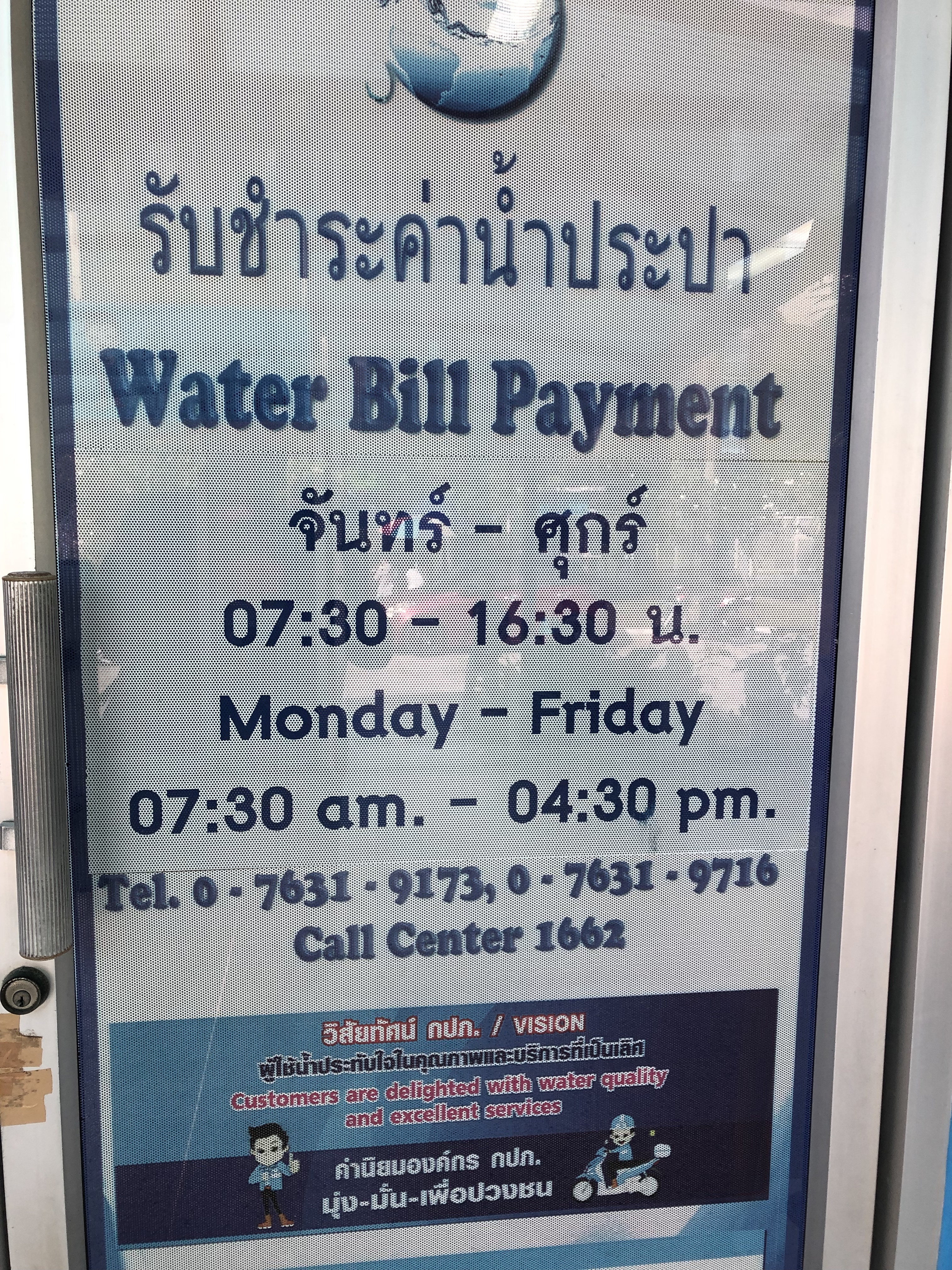
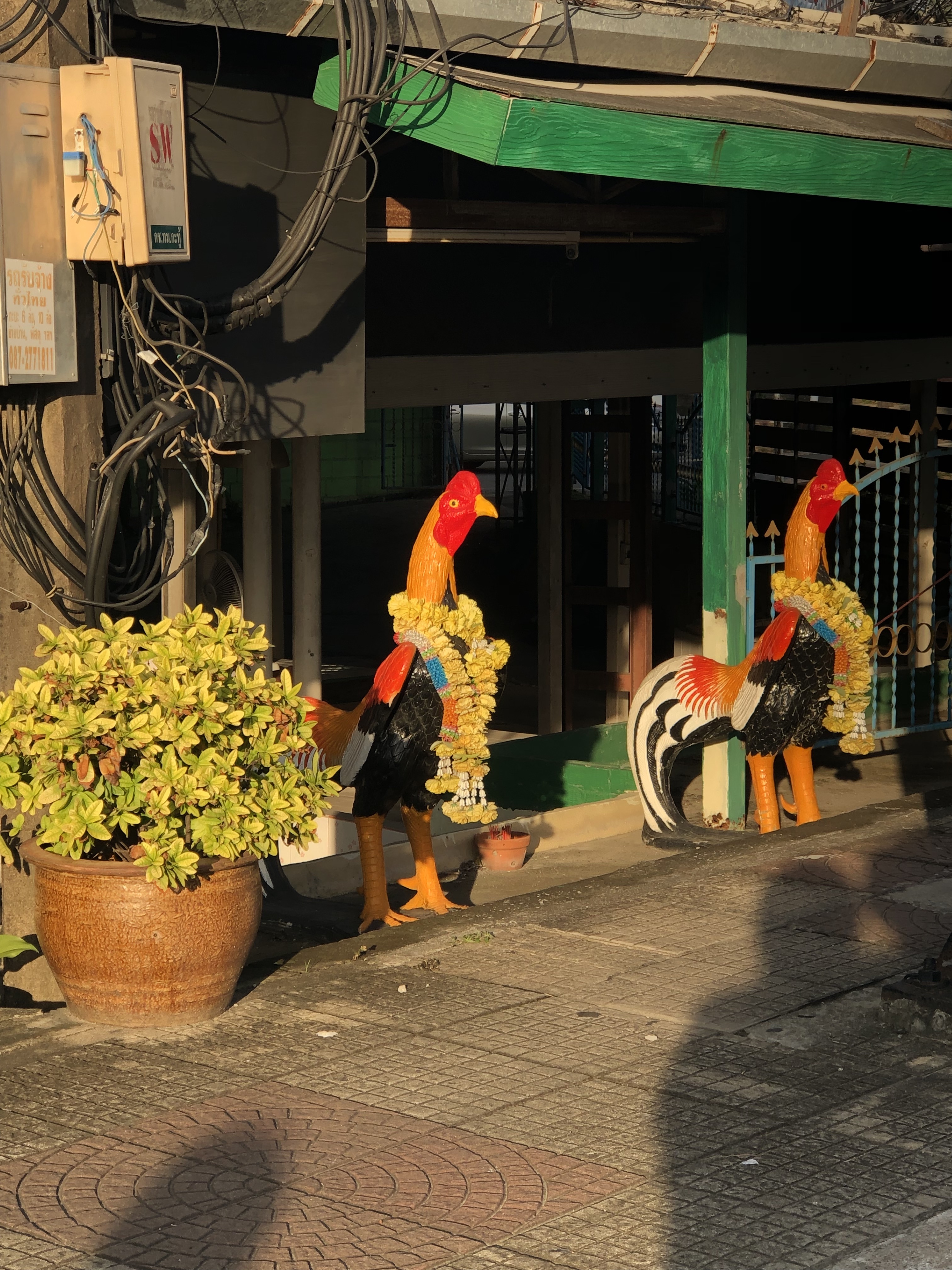
Homes have a central water supply in Phuket and major cities, for bathing, toilets, washing clothes, etc. The water is not safe to drink. Houses and restaurants have water (and ice) delivered for drinking. We had a refrigerator in our rental homes. All people I knew had home refrigeration. Restaurants did not seem to have refrigeration, because they always had ice delivered.
At our house we figured out how to get water delivered. There was a deposit for the bottle. Then we would just pay for what we used. We'd place the empty outside when we needed more water the night before.
Ice for the restaurants seemed to be delivered daily. They had several huge filthy plastic coolers to receive the ice when it was delivered. The ice truck would just pull up front and start unloading a specified amount.
There were some wonderful festivals in Thailand celebrating vegetarianism, Buddhist holidays, the queen (Mothers day). I didn't know ahead of time, but the one festival some people self-mutilate. I didn't notice it during the festival but I got curious when I saw someone with a bandage on their face. They had bandages on either side of their mouth equidistant from the mouth. Curious. At some point after returning home it dawned on me that they had stuck something through their cheeks. OOOOooooohhhh!
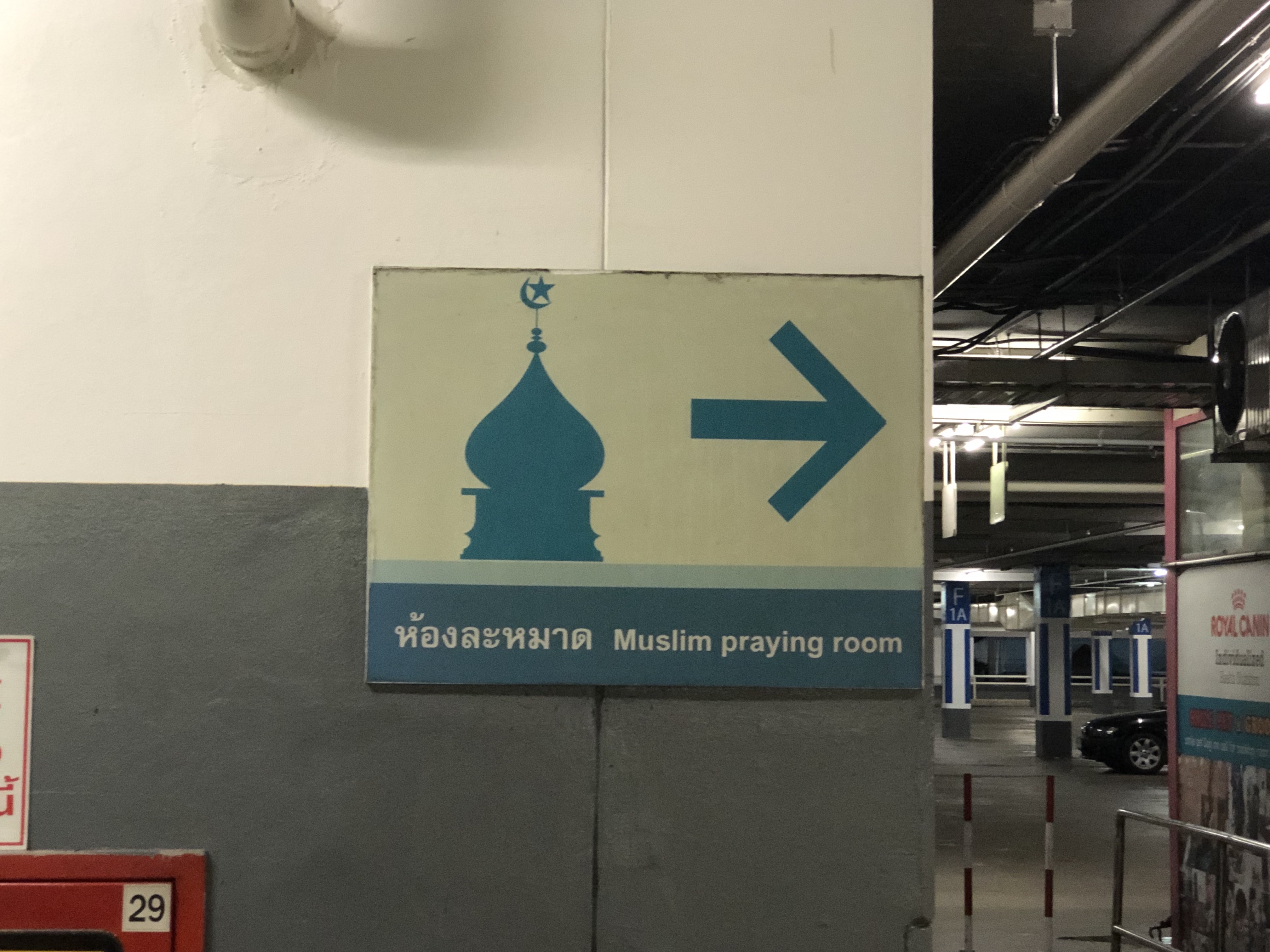
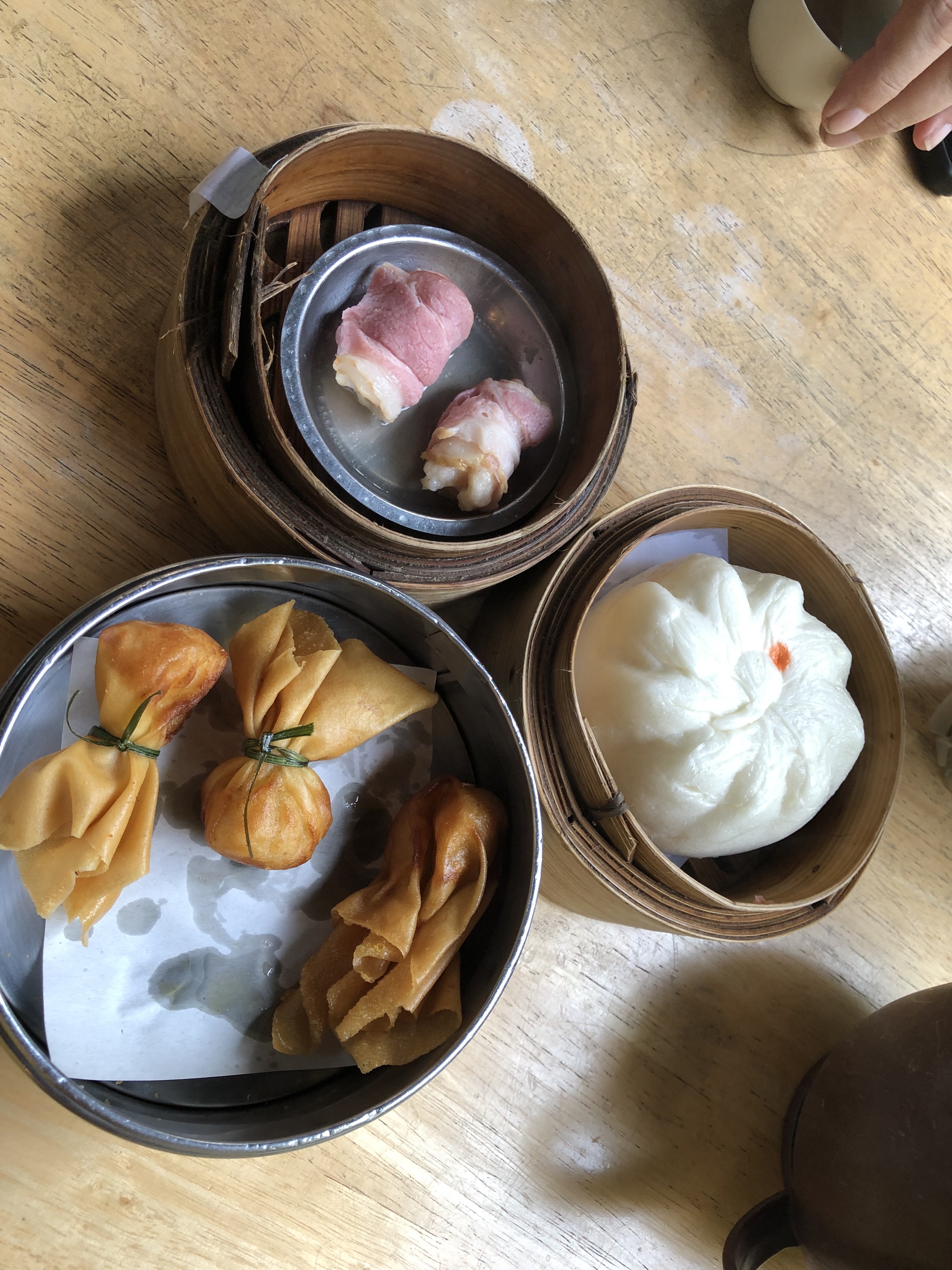
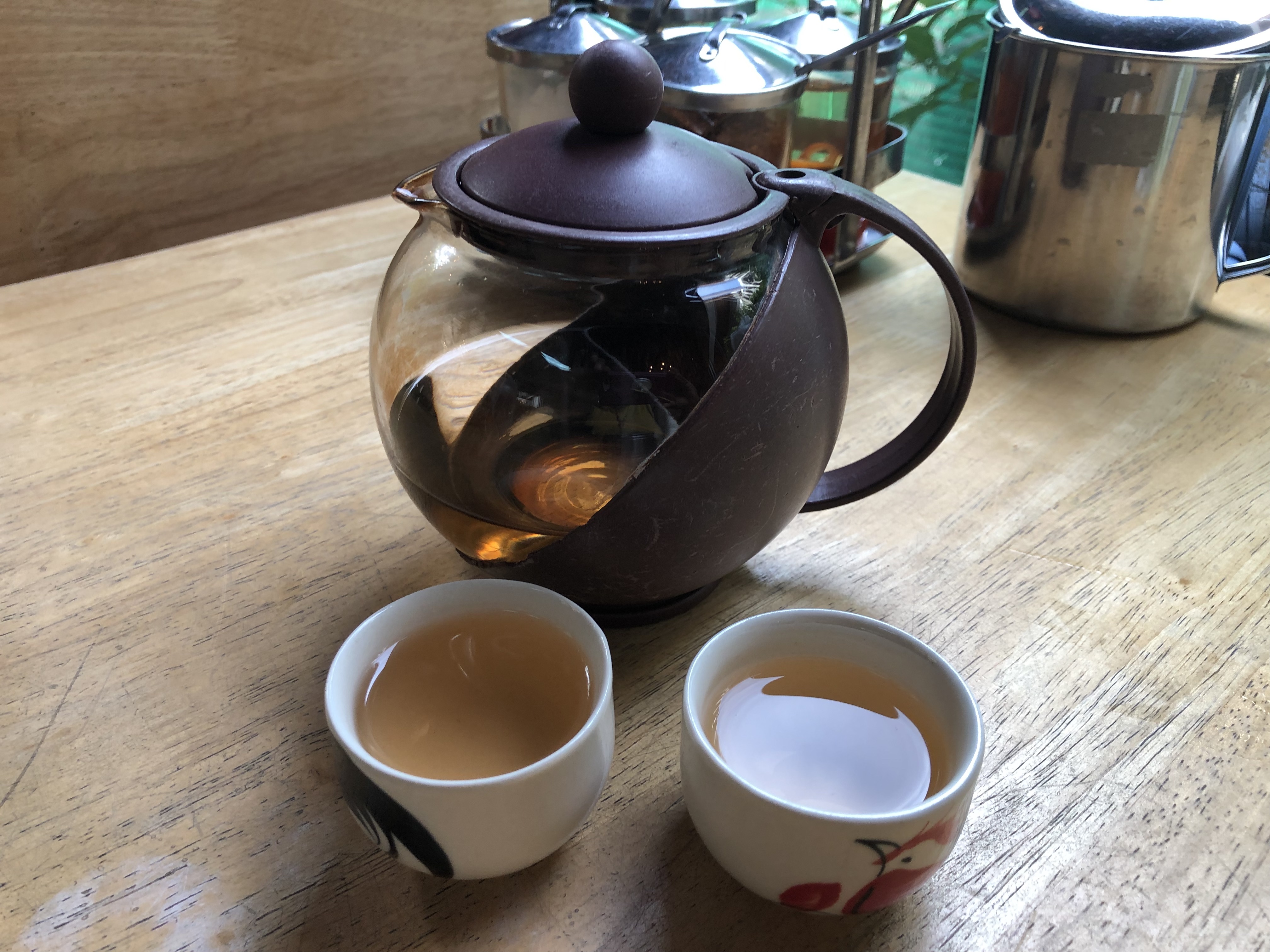
Kitchens were something like colonial kitchens in the US. They are separate from the home. You go out back and they are separate from the rest of the house. They're pretty open to the world altho they have a roof and walls. The walls have ventilation holes, so bugs and pests can get in. If you don't want it eaten put it in the fridge.
We had a huge iguana get into the kitchen. It was a good 2 feet long. We heard noises coming from the kitchen and went back to find it on the counter knocking things onto the floor as it walked across the counter.
The stoves in Thailand are like camp stoves. Some had little cannisters. Some were large. We could purchase them down the street. There were various gases for different equipment. There are very few ovens in individual houses in Thailand. The closest we got was the electric convection oven/air fryer. In Morocco we didn't cook, but they also used gas in cannisters for their cooking. We'd see donkeys plying their way thru the streets of Fes with a saddle frame on their backs full of gas cannisters.
One of the greatest thrills was to be able to afford a massage. We could get a 1˝ hour massage for about $9. In the US it's more like $75-150. I just never got them. At $9 we could afford a massage frequently altho we were under very little stress it was nice to completely relax. In a tourist area they might wonder if you want the "massage plus" feature, but we lived in a more native location so we never had that question. Thai massage is fairly painful. We opted for the gentler variety. There's a little give and take in the conversation about the weight they'll bear on you. We also got massages in China. They offered massage based on Thai training. I thought that was interesting.
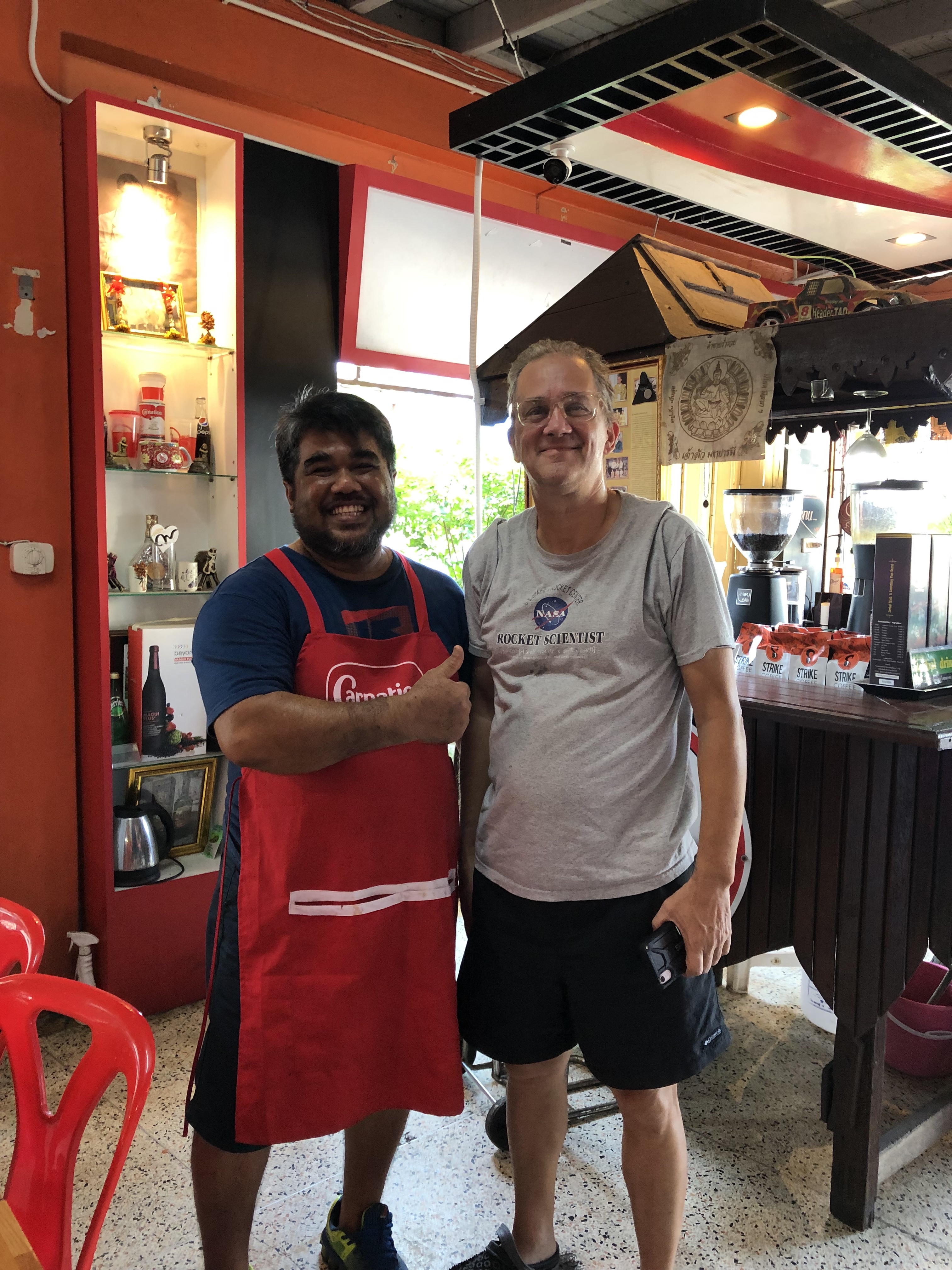
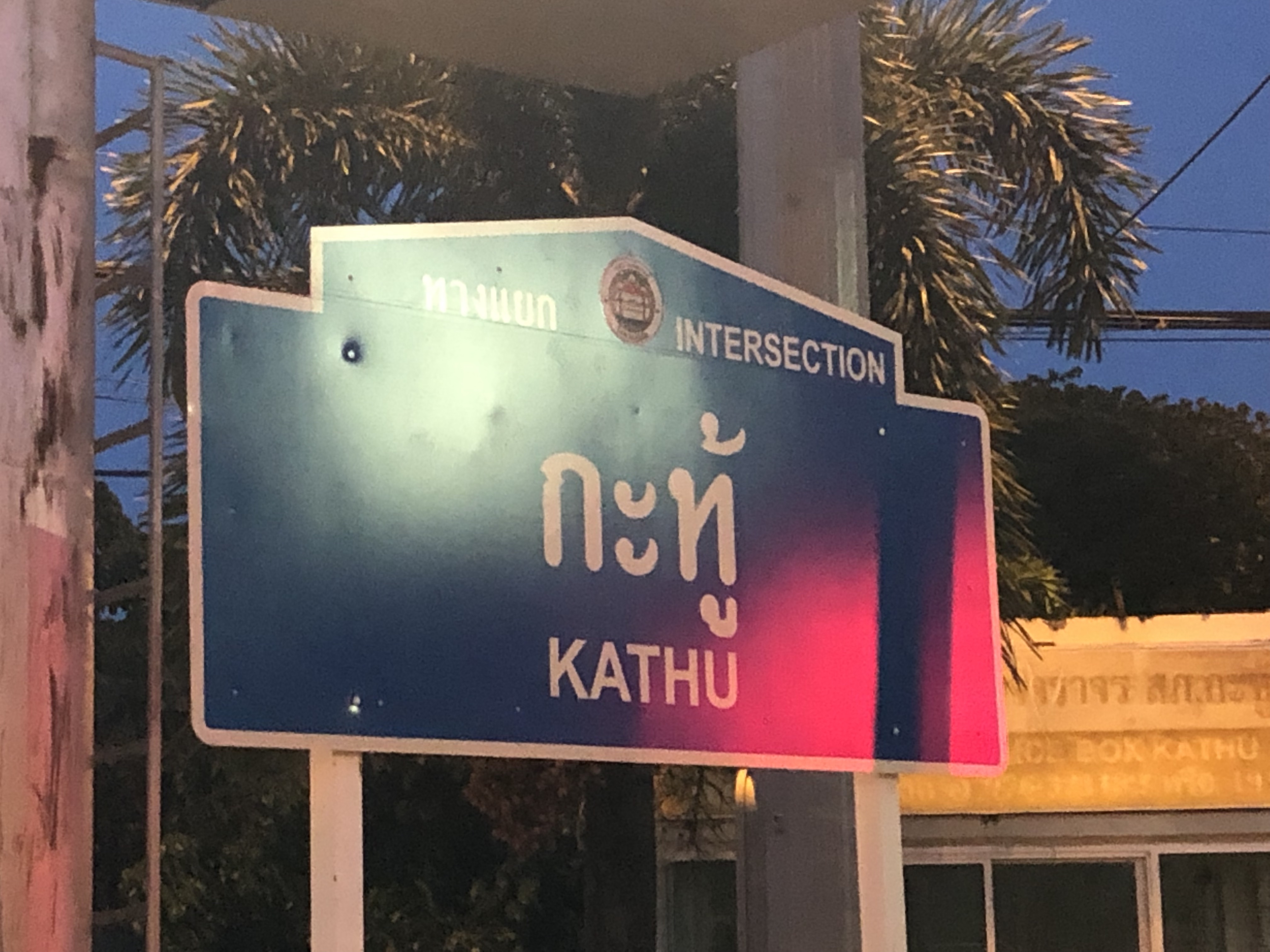
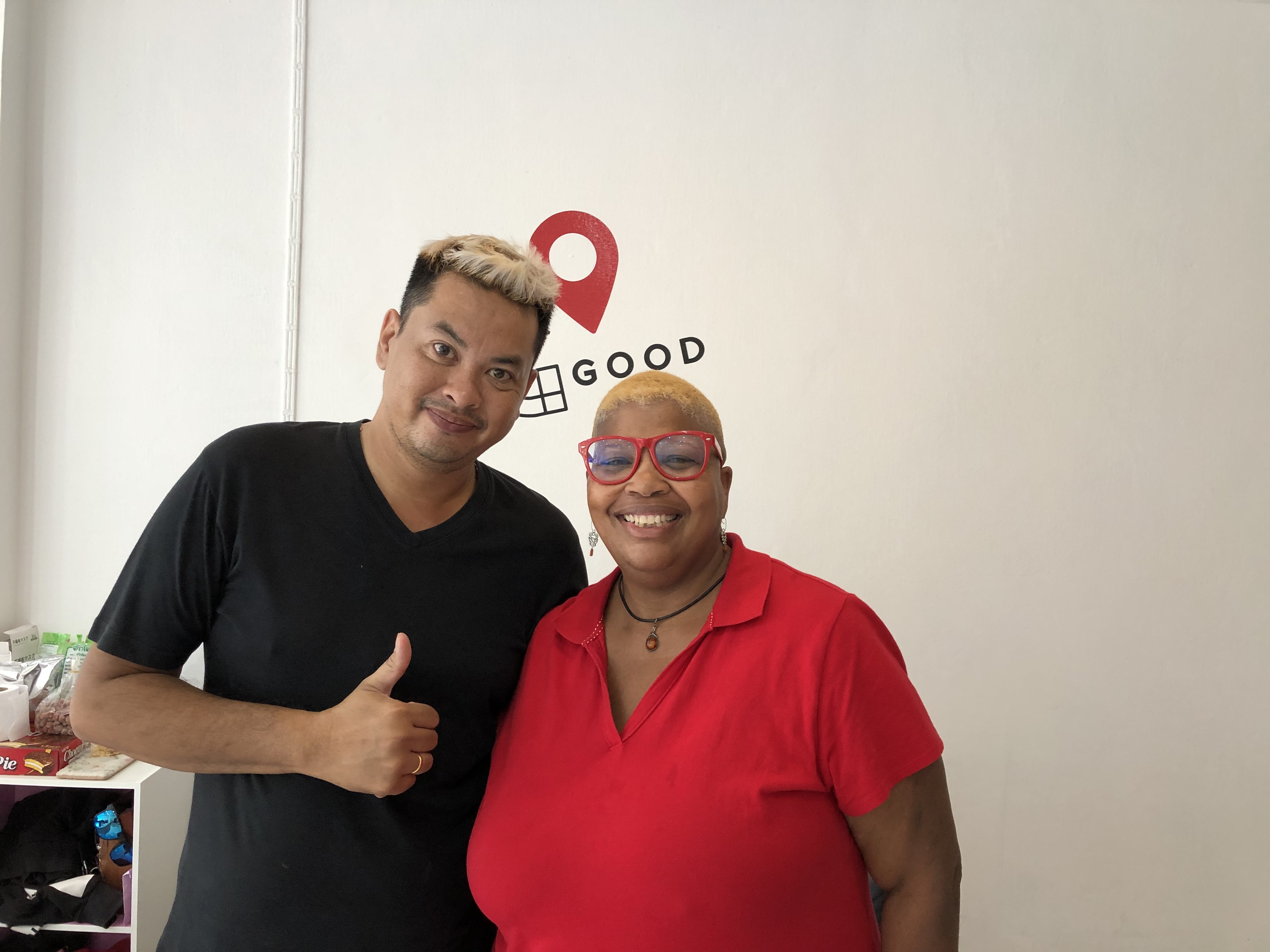
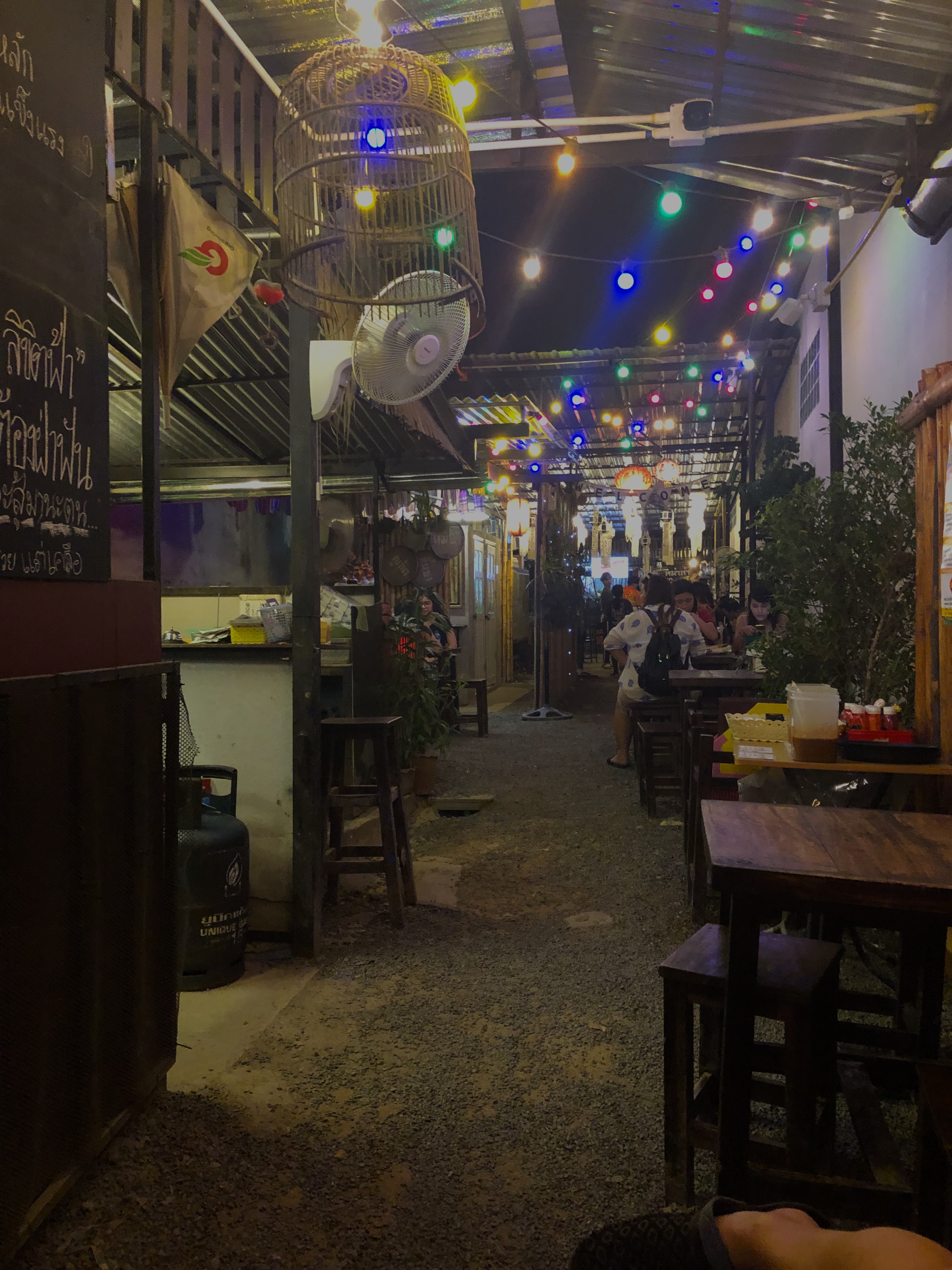
Living in Thailand we are often learning new vocabulary or names. We make notes of the names of foods we like so we can order them again. We're always struggling with writing down words in our best effort to remember something. We also read menus and signs that attempt to represent Thai words and names. We also laugh when we English words spelled differently on different signs.
It's not that they're spelled wrong, the issue is that you can't write it accurately in English. We don't have the same sounds in our language. We don't have the letters to accurately represent alternative sounds.
Is there a difference between nuang and nueng? What about tun and tan? What we try to do is subject to constant mistakes. The notes we make are only rough equivalents. Even translating English to American we need a dictionary. We were talking to a British friend today and she was describing a baby shower. They decided to give the young mother nappies. "You can always use nappies", she said. I translated for Karen: diapers. That's just English to American.
Imagine the challenges of entirely different languages. The Thai language has its' own alphabet, grammar and speaking practice. A letter can have different meaning when pronounced with different tones. It's like a long O versus a short O or a hard G and a soft G. In Thai, every syllable is pronounced in one of five tones: low, mid, high, falling, or rising. The tone must be spoken correctly for the intended meaning of a word to be understood. Since every word has a particular mandatory tone, we say that the Thai language has obligatory lexical tone.